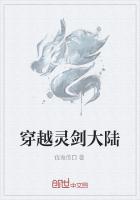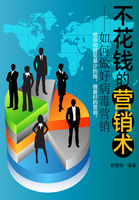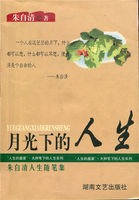When we reflect that within a few decades of the discovery of electric power, every city, large and small, had its street-car and electric-light service, and that most of these cities, through their councils, gave away these monopoly rights for long periods of time, we can imagine the princely aggregate of the gifts which public service corporations have received at the hands of our municipal governments, and the nature of the temptations these corporations were able to spread before the greedy gaze of those whose gesture would seal the grant.
But it was not only at the granting of the franchise that the boss and his machine sought for spoils.A public service corporation, being constantly asked for favors, is a continuing opportunity for the political manipulator.Public service corporations could share their patronage with the politician in exchange for favors.Through their control of many jobs, and through their influence with banks, they could show a wide assortment of favors to the politician in return for his influence; for instance, in the matter of traffic regulations, permission to tear up the streets, inspection laws, rate schedules, tax assessments, coroners' reports, or juries.
When the politician went to the voters, he adroitly concealed his designs under the name of one of the national parties.Voters were asked to vote for a Republican or a Democrat, not for a policy of municipal administration or other local policies.The system of committees, caucuses, conventions, built up in every city, was linked to the national organization.A citizen of New York, for instance, was not asked to vote for the Broadway Franchise, which raised such a scandal in the eighties, but to vote for aldermen running on a national tariff ticket!
The electorate was somnolent and permitted the politician to have his way.The multitudes of the city came principally from two sources, from Europe and from the rural districts of our own country.Those who came to the city from the country were prompted by industrial motives; they sought wider opportunities;they soon became immersed in their tasks and paid little attention to public questions.The foreign immigrants who congested our cities were alien to American institutions.They formed a heterogeneous population to whom a common ideal of government was unknown and democracy a word without meaning.
These foreigners were easily influenced and easily led.Under the old naturalization laws, they were herded into the courts just before election and admitted to citizenship.In New York they were naturalized under the guidance of wardheelers, not infrequently at the rate of one a minute! And, before the days of registration laws, ballots were distributed to them and they were led to the polls, as charity children are given excursion tickets and are led to their annual summer's day picnic.
The slipshod methods of naturalization have been revealed since the new law (1906) has been in force.Tens of thousands of voters who thought they were citizens found that their papers were only declarations of intentions, or "first papers." Other tens of thousands had lost even these papers and could not designate the courts that had issued them; and other thousands found that the courts that had naturalized them were without jurisdiction in the matter.
It was not merely among these newcomers that the boss found his opportunities for carrying elections.The dense city blocks were convenient lodging places for "floaters." Just before elections, the population of the downtown wards in the larger cities increased surprisingly.The boss fully availed himself of the psychological and social reactions of the city upon the individual, knowing instinctively how much more easily men are corrupted when they are merged in the crowd and have lost their sense of personal responsibility.
It was in the city, then, that industrial politics found their natural habitat.We shall now scrutinize more closely some of the developments which arose out of such an environment.















